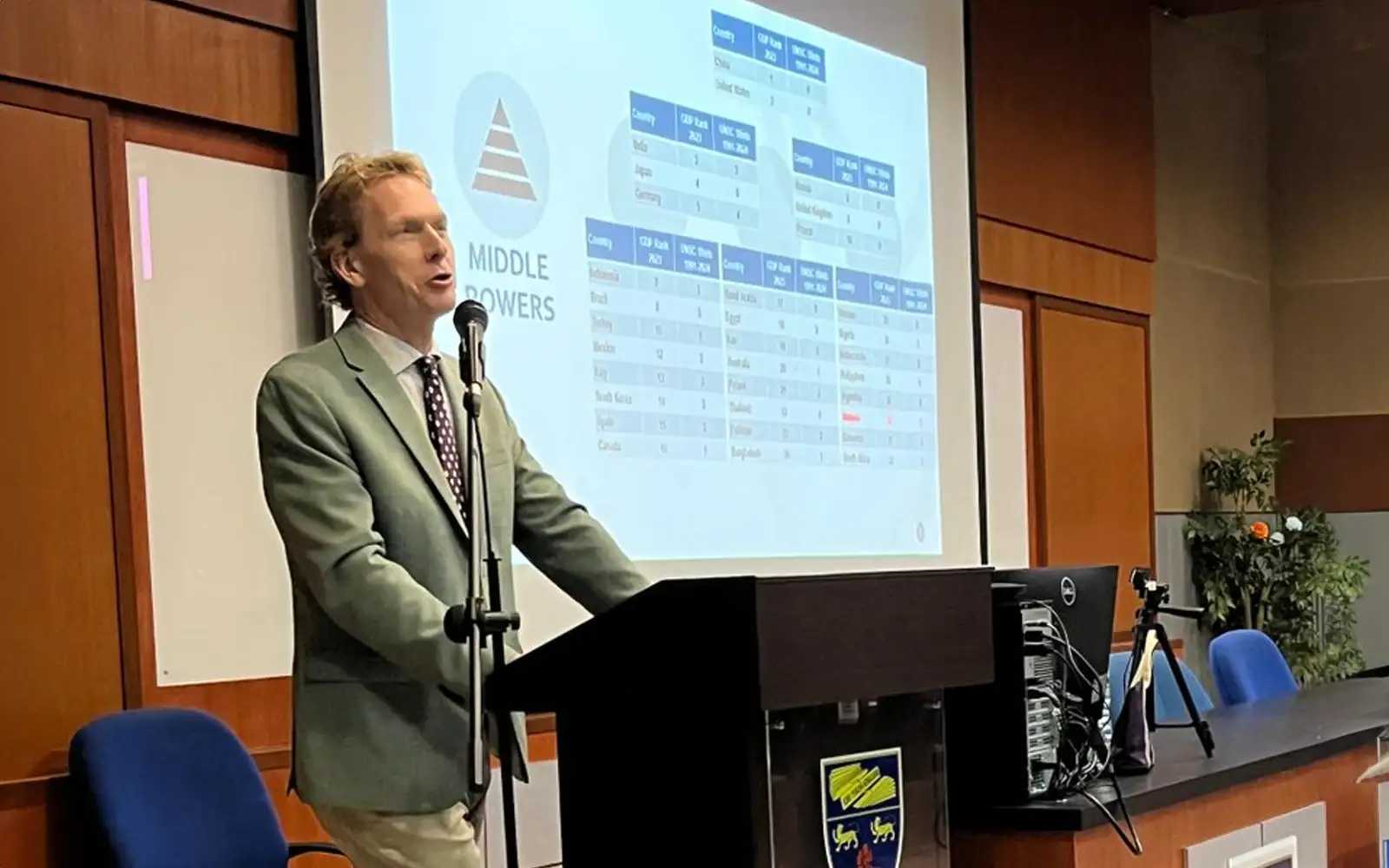
PETALING JAYA: A US academic is facing heat on social media after purportedly claiming that Malaysia is pushing for a “second Holocaust against the Jewish people” during a talk he delivered at Universiti Malaya.
Bruce Gilley, a professor of political science at Portland State University, delivered a talk titled “Will Malaysia Become an Active Middle Power” at UM yesterday afternoon – where he also supposedly downplayed Malaysia’s ties with the US.
“‘A country whose political leaders advocate a second Holocaust against the Jewish people will never be a serious player in world affairs, and will certainly never be a friend or partner of the US,’ from my keynote address yesterday in KL on Malaysian foreign policy,” said Gilley in a post on X.
“This has been a long-standing vice of Malaysian politicians going back to Mahathir’s (former prime minister Dr Mahathir Mohamad) advice to learn from the Germans on how to kill Jews.
“Most explicitly, in October, agriculture (and food security) minister Mohamad Sabu promised a rally that ‘Israel will soon disappear’,” he added.
Malaysia has no diplomatic ties with Israel and has repeatedly condemned the country for its numerous attacks on Palestine, including the current war in Gaza which has seen more than 34,000 Palestinians killed and 77,000 wounded since Oct 7 last year.
Responding to Gilley’s post, former foreign minister Saifuddin Abdullah called on the foreign ministry and UM to provide more details about the talk.
Muda acting president Amira Aisya Abd Aziz said Gilley’s post was “absolutely misleading and unacceptable”, adding that his statements falsely depicted Malaysia’s support for an independent Palestinian state.
“We have never advocated for a second Holocaust … Academic institutions should be very careful in inviting speakers and lecturers who are spreading pro-Zionist narratives,” she said in a post on X.
In another response to Gilley’s post, @ooikokhin, said Gilley’s statement was “irresponsible” and “untrue”, adding that it had also jeopardised his hosts.
“But you don’t care, do you? Knowing full well of the context, (you) still went into business for yourself,” said the user. “It’s not a keynote address. Stop exaggerating to seek validation.”
Another X user, @sangkancilguru, asked how UM filtered those invited to speak at the university.
When asked for comment, a UM spokesman told FMT that the university was “currently looking into this issue”.
In the higher education ministry’s WhatsApp group for the media, a ministry spokesman said the ministry would look into the issue and take appropriate action.
Gilley is no stranger to controversy.
In 2017, his article “The Case for Colonialism” which was published in the Third World Quarterly (TWQ) journal resulted in immense criticism and generated two separate petitions signed by thousands of academics demanding that it be retracted.
In an article published by the US’s National Association of Scholars (NAS), the group noted that the academics also asked that TWQ apologise for Gilley’s article and that the editor or editors responsible for its publication be dismissed. NAS said 15 of the journal’s 34-member editorial board resigned in protest.
Publisher Taylor and Francis issued a detailed explanation of the peer review process that the article had undergone, countering accusations of “poorly executed pseudo-scholarship”.
However, NAS said that serious threats of violence against the editor led the journal to withdraw the article, both in print and online.
Gilley was also personally and professionally criticised and received death threats. - FMT



No comments:
Post a Comment
Note: Only a member of this blog may post a comment.